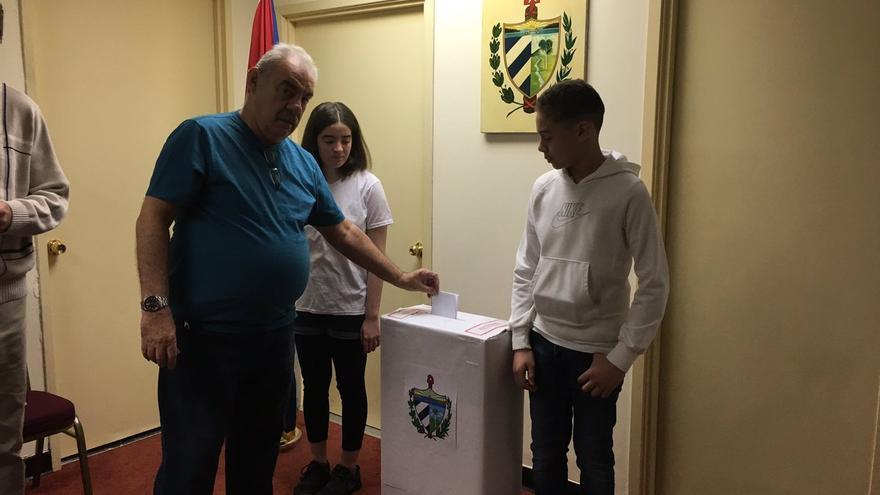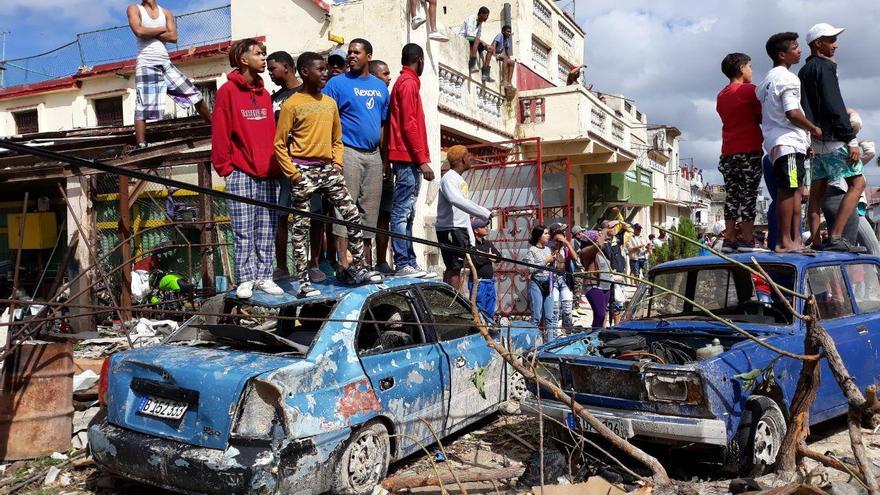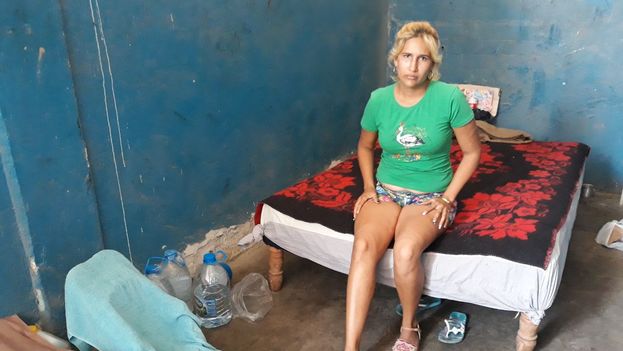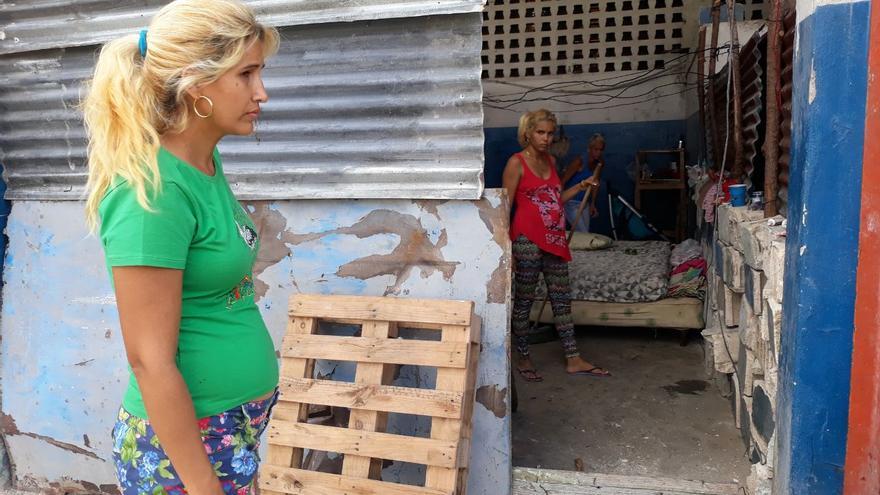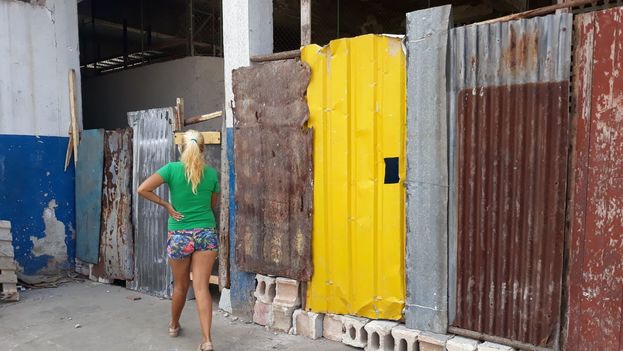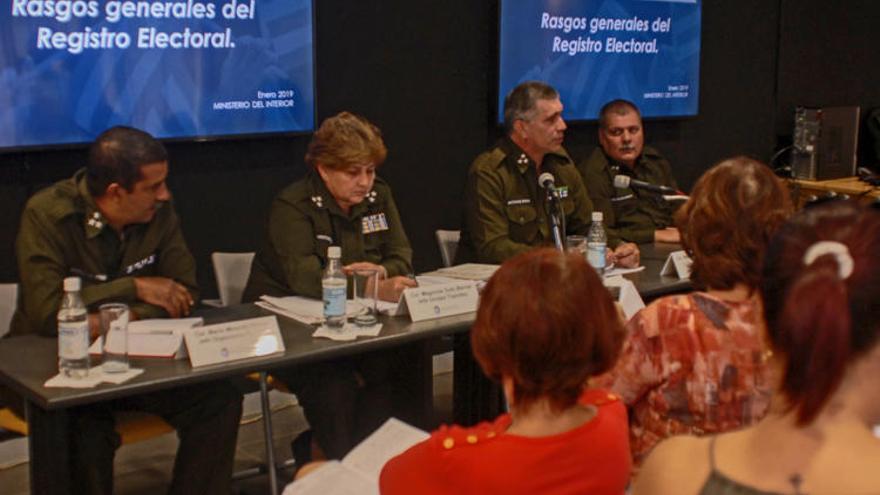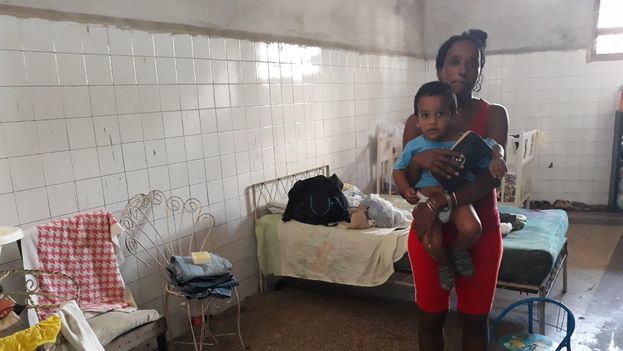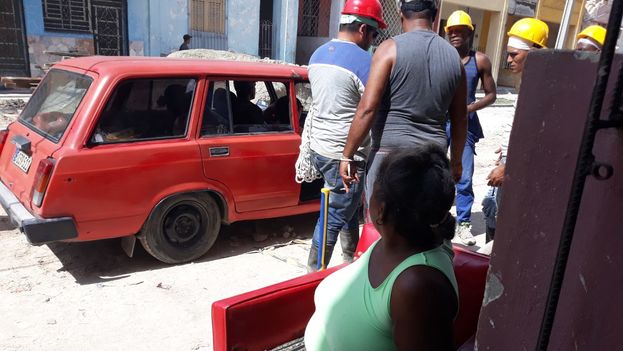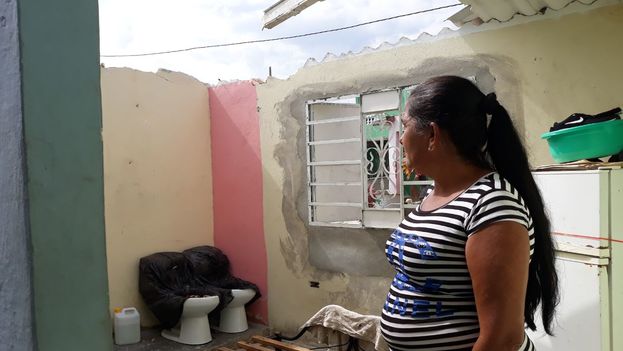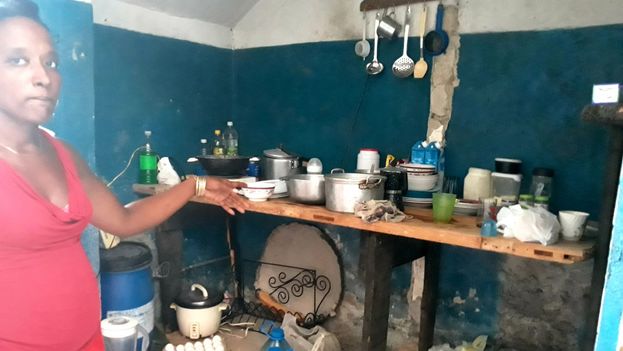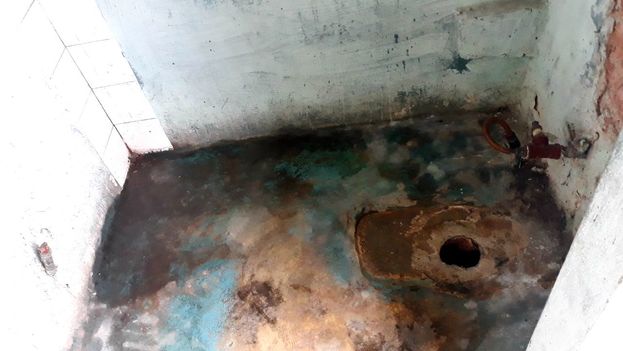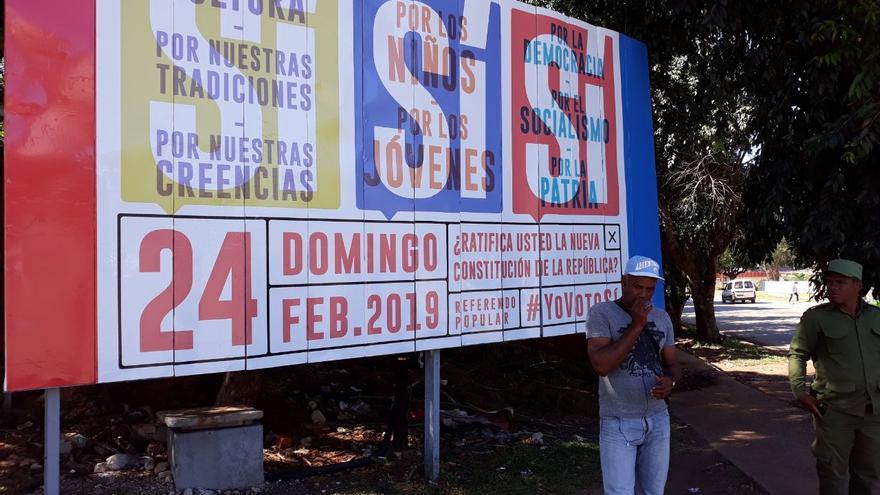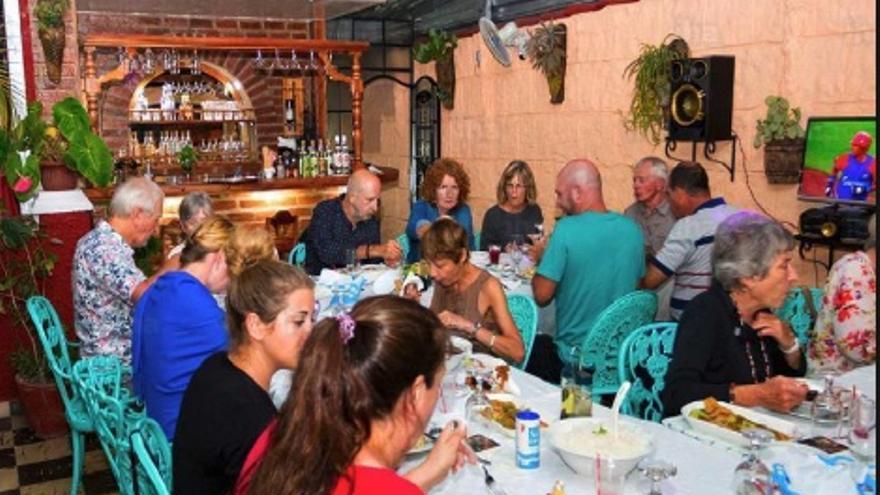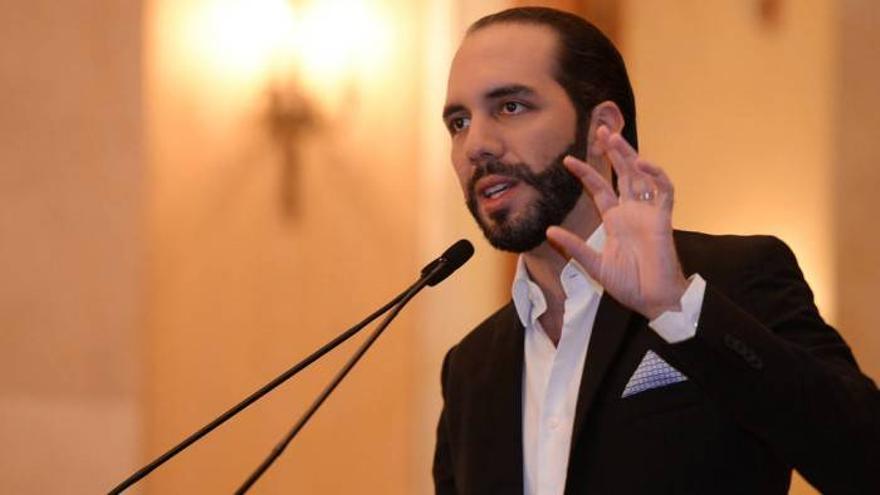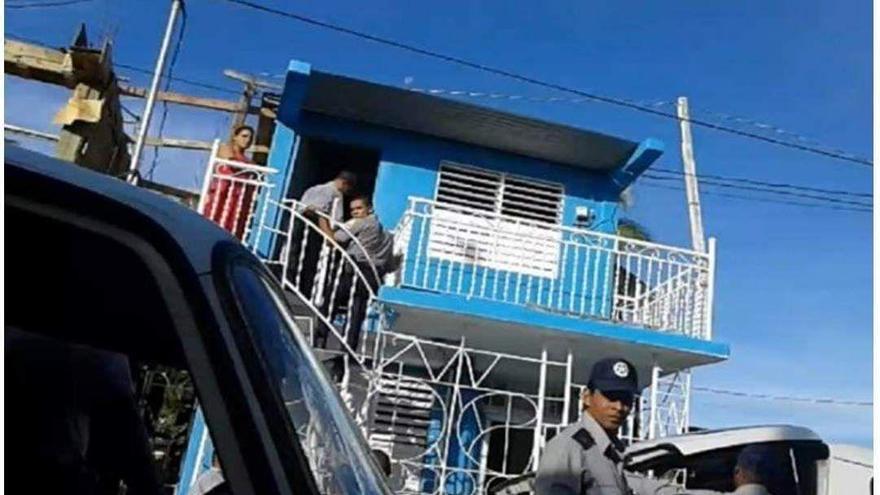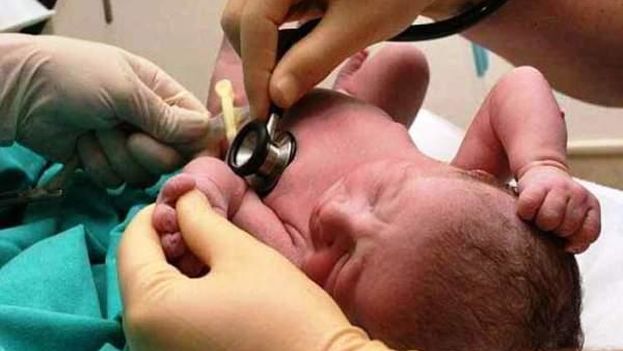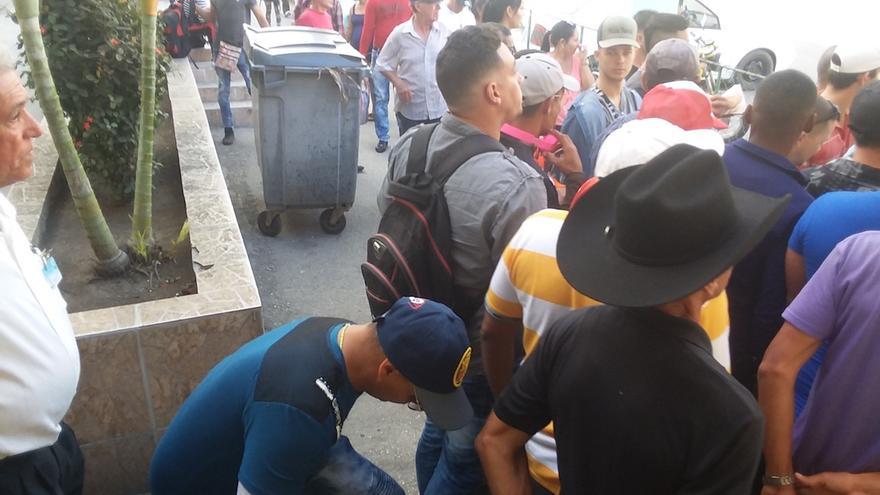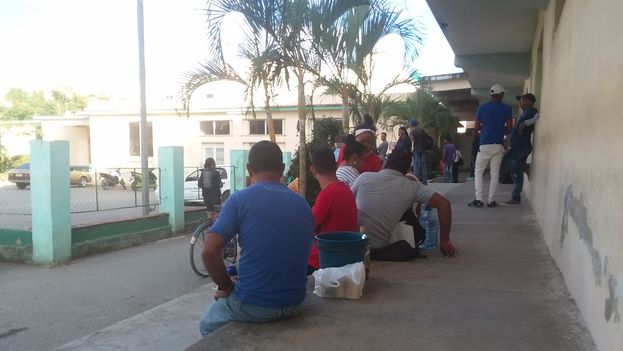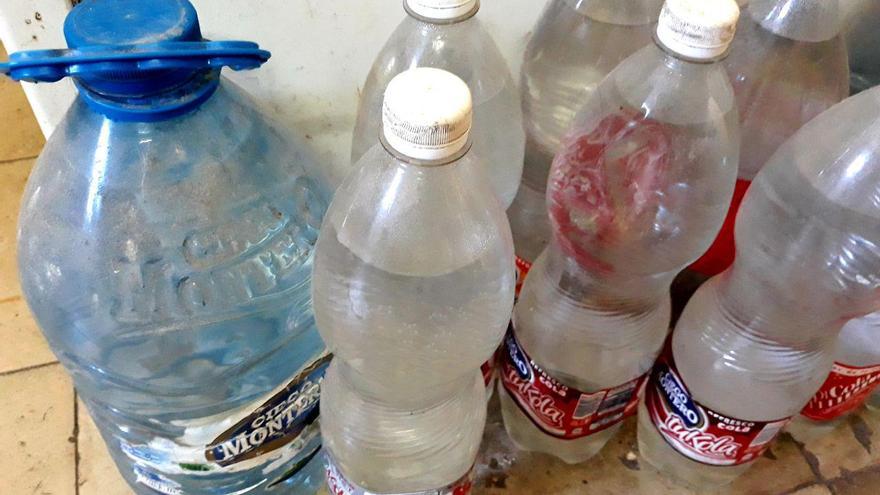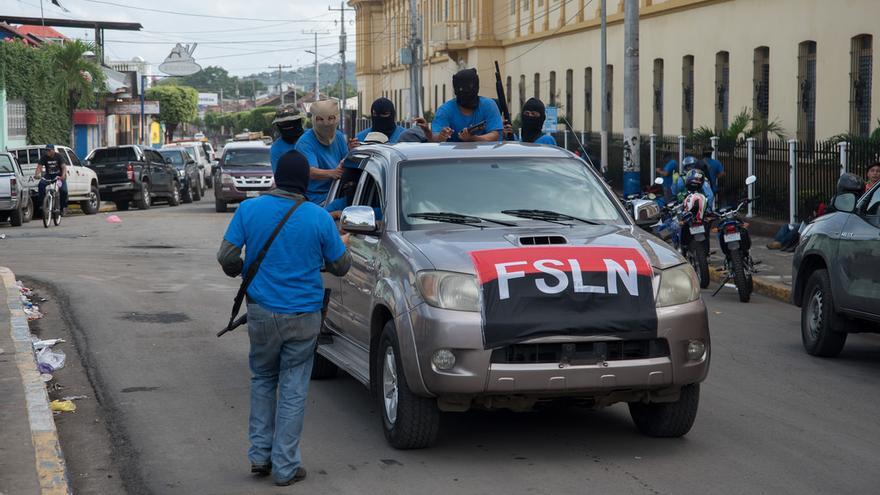
![]() 14ymedio, Wilfredo Miranda Aburta, Managua | February 18, 2019 — Giancarlo Fiorella, a Venezuelan and author of the Bellingcat investigation detailing the paramilitaries’ arsenal during the Ortega massacre, is surprised by the level of collusion between the paramilitaries and the police in their lethal operations, something which, he insists, he hasn’t seen in Venezuela.
14ymedio, Wilfredo Miranda Aburta, Managua | February 18, 2019 — Giancarlo Fiorella, a Venezuelan and author of the Bellingcat investigation detailing the paramilitaries’ arsenal during the Ortega massacre, is surprised by the level of collusion between the paramilitaries and the police in their lethal operations, something which, he insists, he hasn’t seen in Venezuela.
“As a point of comparison, the level of cooperaction between paramilitaries and police is higher than in Venezuela. In Venezuela, the Chavista groups don’t have this type of arms, and it isn’t clearly seen that they collaborate closely with the police,” explained Fiorella in an interview with the journalist Carlos Fernando Chamorro on the TV program Esta Noche.
The analysis he carried out shows the deployment of at least seven types of weapons of war employed, and also suggests that the Police Tactics and Arms for Intervention and Rescue (TAPIR) unit was involved in the massacre. continue reading
Bellingcat is a portal dedicated to carrying out journalistic investigations from open sources. To analyze the paramilitary arsenal, Bellingcat was based on different videos of the repression, the final report of the Independent Group of International Experts (GIEI), and the investigation of Confidencial, “They fire with precision: to kill!,” a piece that won the 2018 King of Spain Iberoamerican Journalism Prize.
Fiorella is currently pursuing a doctorate at the Center of Criminology of the University of Toronto, in Canada, and previously published another revealing investigation on the execution of the rebel Venezuelan pilot Óscar Pérez at the hands of Chavista security forces.
“The groups in Venezuela have a greater proportion of civilians or of individuals that have no connection with the State, like the paramilitary groups in Nicaragua. The chief of police said that many of them were police officers who were in secret operations,” explained the journalist.
Bellingcat focuses on two of the most brutal episodes of paramiltary repression: the attack on the UNAN-Managua and the church of Divine Mercy on July 13, and the taking of Masaya on July 17 and 18.
From a detailed analysis of video and photographic proof, Bellingcat identifies a deployment of military rifles used by the paramilitaries: AK-74, Dragunov sniper rifles, PKM machine guns, and M16 rifles. They also found Remington 700 rifles, Jericho 941 pistols, and magazines of Soviet-model drum bullets with capacity of up to 75 bullets.
A few weeks ago, the Norwegian newspaper Dagbladet published an interview with the first commissioner and police chief, Francisco Díaz, who assured that the paramilitaries were, in the majority, professional police carrying out covert operations. The rest, he said, were “volunteer police.” The statements of the relative by marriage of the presidential Ortega-Murillo couple left clear the responsibility of the institution in the worst massacre committed since after the war in Nicaragua. The casualty toll is at least 325 confirmed dead and thousands of wounded, in accordance with international human rights bodies.
In the videos analyzed by this investigation, it was found that paramilitaries used MOTOTRBO brand radio communicators (like the DP4800, XPR 7000, and Tait TP8100 series). “These radios are sold for commercial and industrial use, and there is evidence that suggests that the TAPIR unit of the National Police has used similar radios in the past, as can be seen in these videos,” affirms Bellingcat.
“One of the videos shows the close connection between the Nicaraguan Police and the paramilitaries. At minute 1:40 in the video, a man in a black uniform appears. The word Police is written in white on his back. At minute 1:50, the man turns around and begins to walk. When he does so, a patch on his right sleeve becomes briefly visible. The patch seems to be that of the TAPIR unit of the National Police,” specifies Bellingcat, in a video on the massacre of Masaya. “The patch of the man in the Police uniform in the video (left) seems to be that of the TAPIR unit of the National Police,” it sustains.
Fiorella explained that in the two pieces of evidence there is participation of uniformed agents. The attacks on Masaya and the UNAN-Managua are being referred to. After seeking open-source information, Fiorella found in YouTube videos that the TAPIR unit was using similar radios to those of the paramilitaries who massacred the UNAN students.
“In Venezuela, although there is participation of armed groups in the repression of protests, the number of dead has never reached what was seen in Nicaragua. The arms aren’t even of the same caliber. Normally, in Venezuela they only have pistols. There are cases of bigger weapons, but not like has been seen in Nicaragua,” said Fiorella.
“The Confidencial investigation offers even more evidence that the government of President Ortega is resolved to put a stop to the demonstrations by any means. The indiscriminate use of arms in the hands of paramilitary groups and of the Police meant that the type of wounds discovered by Confidencial were not only possible, but practically inevitable,” concludes Bellingcat.
According to Fiorella, the findings of his investigation squares with everything that was already known and was established by bodies like Amnesty International and the Independent Group of International Experts (GIEI), who worked with sources in Nicaragua, proving that the paramilitary groups who operated during the repression were working very closely with police squads.
“This is evidenced in the weapons used. Weapons of war, as the study has highlighted. We can say that the paramilitaries, probably, shared weapons with the police forces of the State of Nicaragua,” emphasized Fiorella.
Editors’ note: this text was published by the Nicaraguan digital outlet Confidencial, which has authorized us to reproduce it.
Translated by: Sheilagh Carey
______________________________
The 14ymedio team is committed to serious journalism that reflects the reality of deep Cuba. Thank you for joining us on this long road. We invite you to continue supporting us, but this time by becoming a member of 14ymedio. Together we can continue to transform journalism in Cuba.

